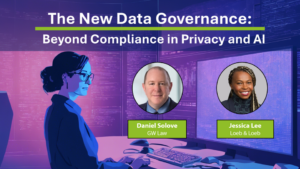
I just published an op-ed in the Boston Globe entitled “States can fight authoritarianism by shoring up privacy laws.” Boston Globe (Dec. 23, 2024). It’s paywalled, but I’m allowed to repost it, so here it is below. I’m working on a law review article on this topic, and I hope to have a draft in the next month or so. Please stay tuned.
Crackdowns on immigrants. Surveillance of abortion providers and abortion seekers. Harassment of critics. These maneuvers in the demagogue’s playbook would be harder to pull off with better digital privacy.
As the United States and much of the world turn back to the darkness of authoritarianism that blighted the previous century, we must remember that privacy is one of the bulwarks against the power of authoritarian governments. Unfortunately, we’re living in a more intensive surveillance society than ever before, and our privacy laws are ill equipped to protect us against government access to our personal data.

In the years to come, the federal government and many state governments might engage in surveillance and data gathering as they round up immigrants, punish people for seeking, providing, or assisting abortions, and attack gender-affirming health care. The government might use personal data in its effort to retaliate against those who stand in its way. Such efforts might be assisted by mobs of vigilantes who will use personal data to dox, threaten, embarrass, and harm anyone they don’t like — much like the way many people eagerly assisted totalitarian regimes in finding “undesirables” and rooting out and punishing dissenters.
Our best hope for protection is that legislators in Massachusetts and other states who are concerned about these risks take steps now to upgrade their privacy laws.



















